
“ People said our country is paradise, a stick wood even could be plants ....”
Do you believe that the rocks could be plants like a short clip of song above? It’s impossible, isn’t it? Except we sell the rocks and by then we buy vegetables or plant seed (just a joking answer, isn’t it?). But this is true story I got from field, when I visited Sumba year ago with my office mates.
The impossible thing was broken by Mr. Willem Jacob, a fisherman that we met in his simple hut home, about 300 meter from the Mondu Beach, East Sumba.
To reach this beach, we must pass many kilometers from the capital city of Waingapu, passing through a rocky and dried road, almost no plants or trees aside the road we passed, but in the water source area. When our car speeded, it was like Paris Dakkar car rally like in television. “How do people here could survive to live with this such tremendous condition of nature?,” perhaps this is a common question from a new comer like me that firstly made this trip.
His house was so simple, with the coconut tree as its roof, among the rocky and dusty desert minus trees. Everyday, he and his fisherman group consist of 8 people, went to go fishing by their boat. But at that time he didn’t go since it was the windy season which was very dangerous for fisherman to go fishing because the rain fell hard and the wind sometimes hard and made storm. So, we started asking, “If they don’t go for fishing, the how do they live then?” The market was far away, no proper transportation means to go for shopping to the city. Suddenly Mr. Jacob invited me and my partners to see his backyard.
By the time we got at his backyard, we were amazed by what we saw, we found a wide of greenies, green vegetables was planted arround his backyard. We never imagined that before that in the midst of this dried and rocky savana, Mr. Jacob could bear a wide green spreaded in his backyard. He watered it from the well not far from the yard. Amazingly, although his house is very near with the sea, but the water from the well was not salty at all. More amazed when we saw the land’s color was brown, which means that although it’s located in the rocky and dried savana, but the land was not consist of calcium. “Yes, we eat from this yard. Sometimes we sell the harvest to other people,” explained Mr. Jacob. “My princip since the first time I live in this hard place was that this rocks had to become plants,” said him again.
Sometimes we want a perfect and condusive situation to support our work, our bussiness. But Mr. Jacob was different. He gave life a special meaning which was to thank God. Though he and his family had to live in the area that commonly hard for people to live, Mr. Jacob believed that this rocky and dried savanah could bear fruit of life. Believing was not enough though, he added hard working in it. So his family and him working hard to make his dream come true. And as the result, he enjoyed the greenies in his backyard. It was contrary but it was a proof, where there is a belief and hard work, there will always be a way.
Hm...I think I need to learn from this wise fisherman, even in this hard times. Thank you Mr. Willem Jacob! (*)
Do you believe that the rocks could be plants like a short clip of song above? It’s impossible, isn’t it? Except we sell the rocks and by then we buy vegetables or plant seed (just a joking answer, isn’t it?). But this is true story I got from field, when I visited Sumba year ago with my office mates.
The impossible thing was broken by Mr. Willem Jacob, a fisherman that we met in his simple hut home, about 300 meter from the Mondu Beach, East Sumba.
To reach this beach, we must pass many kilometers from the capital city of Waingapu, passing through a rocky and dried road, almost no plants or trees aside the road we passed, but in the water source area. When our car speeded, it was like Paris Dakkar car rally like in television. “How do people here could survive to live with this such tremendous condition of nature?,” perhaps this is a common question from a new comer like me that firstly made this trip.
His house was so simple, with the coconut tree as its roof, among the rocky and dusty desert minus trees. Everyday, he and his fisherman group consist of 8 people, went to go fishing by their boat. But at that time he didn’t go since it was the windy season which was very dangerous for fisherman to go fishing because the rain fell hard and the wind sometimes hard and made storm. So, we started asking, “If they don’t go for fishing, the how do they live then?” The market was far away, no proper transportation means to go for shopping to the city. Suddenly Mr. Jacob invited me and my partners to see his backyard.
By the time we got at his backyard, we were amazed by what we saw, we found a wide of greenies, green vegetables was planted arround his backyard. We never imagined that before that in the midst of this dried and rocky savana, Mr. Jacob could bear a wide green spreaded in his backyard. He watered it from the well not far from the yard. Amazingly, although his house is very near with the sea, but the water from the well was not salty at all. More amazed when we saw the land’s color was brown, which means that although it’s located in the rocky and dried savana, but the land was not consist of calcium. “Yes, we eat from this yard. Sometimes we sell the harvest to other people,” explained Mr. Jacob. “My princip since the first time I live in this hard place was that this rocks had to become plants,” said him again.
Sometimes we want a perfect and condusive situation to support our work, our bussiness. But Mr. Jacob was different. He gave life a special meaning which was to thank God. Though he and his family had to live in the area that commonly hard for people to live, Mr. Jacob believed that this rocky and dried savanah could bear fruit of life. Believing was not enough though, he added hard working in it. So his family and him working hard to make his dream come true. And as the result, he enjoyed the greenies in his backyard. It was contrary but it was a proof, where there is a belief and hard work, there will always be a way.
Hm...I think I need to learn from this wise fisherman, even in this hard times. Thank you Mr. Willem Jacob! (*)

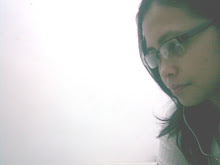
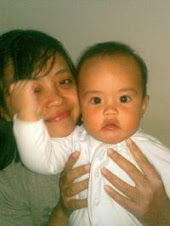
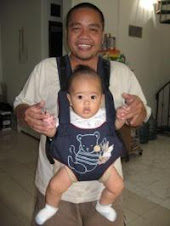

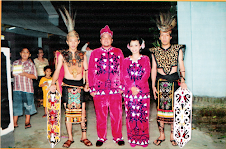
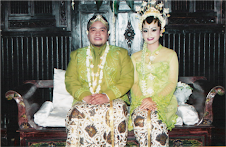.png)
No comments:
Post a Comment